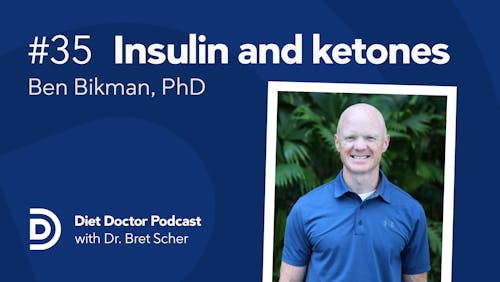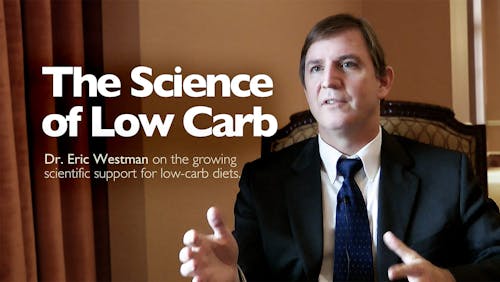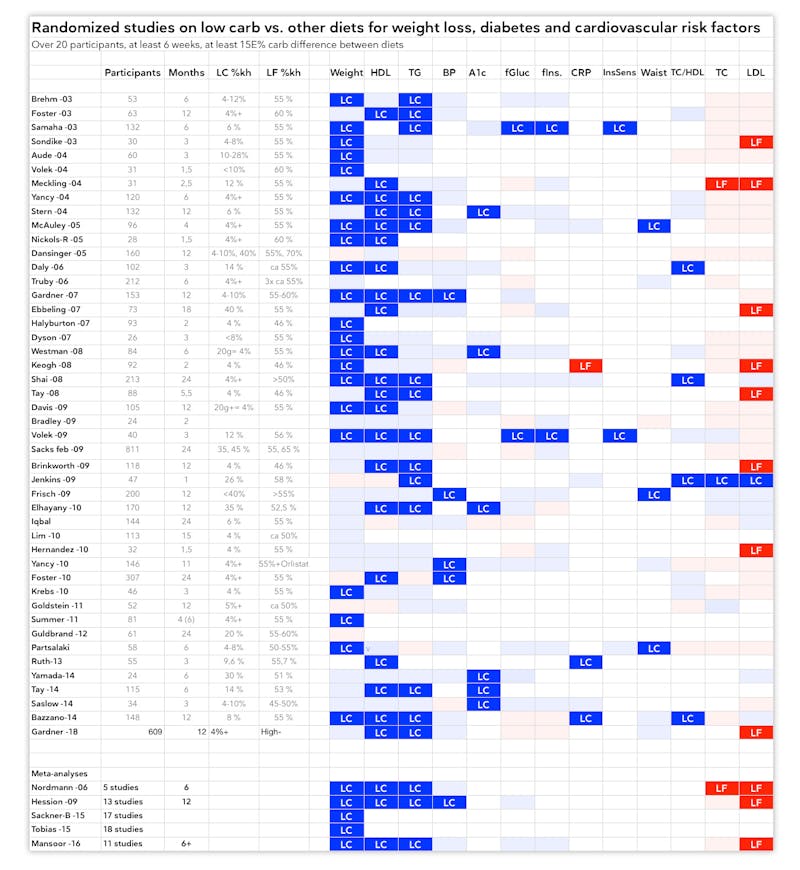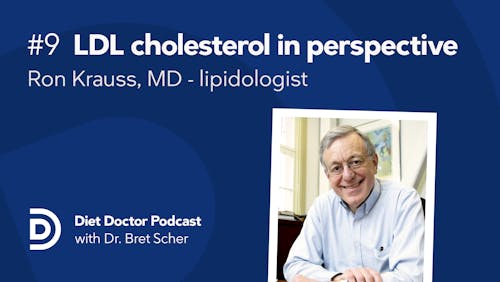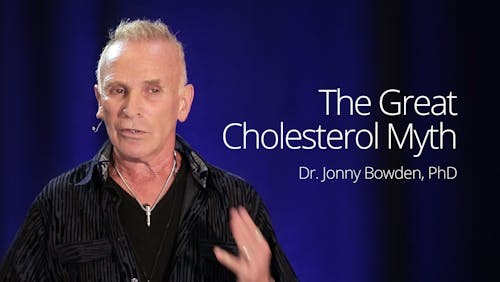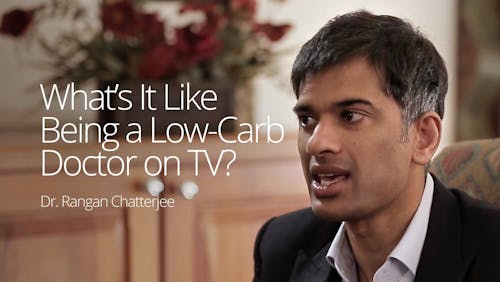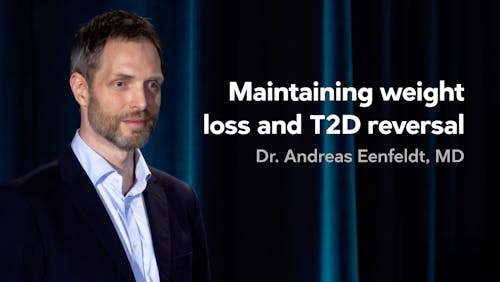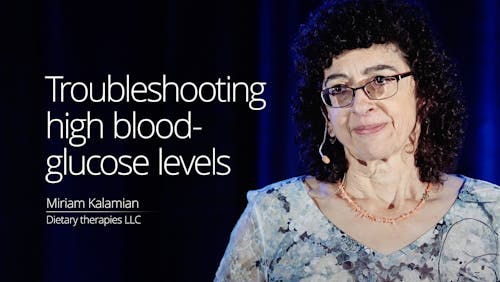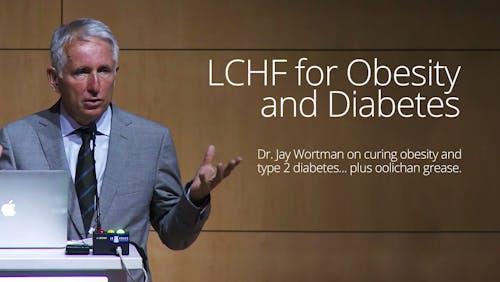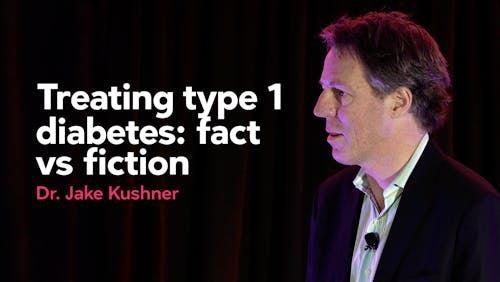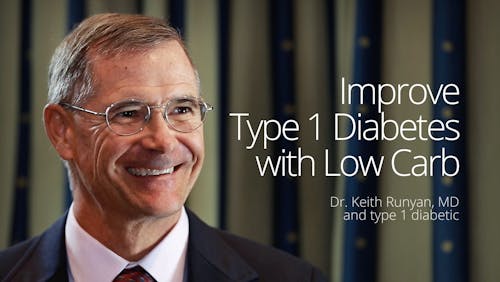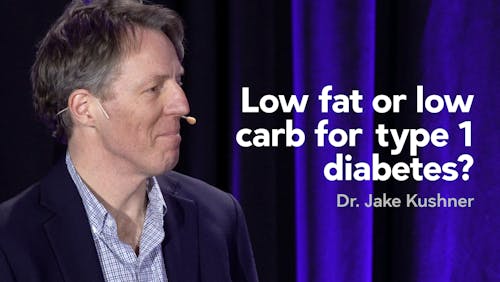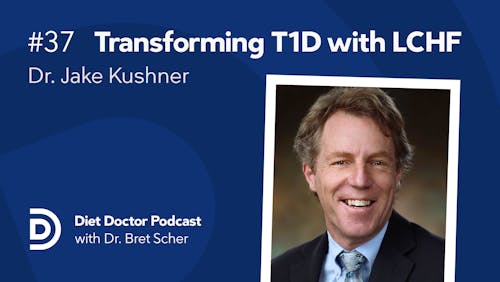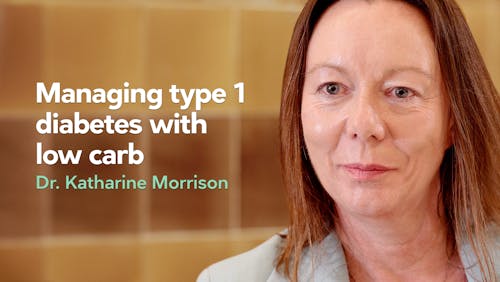Long-term safety of low carb
Some health experts have raised concerns about the long-term effects of low carb. All diets can be done well or poorly, and risk of of nutritional inadequacy exists with all ways of eating. However, a well-planned, nutritionally adequate low-carb diet has no evidence of risk, to the best of our knowledge, as carbohydrate is not a part of essential nutrition.
Bone health
Some concerns have been raised about the perceived risks of protein intake on the acid-base balance of the body and how that could affect bones. No evidence supports this concern. The internal pH of the body is firmly regulated and is not significantly affected by diet.14
Regarding bone health, the latest meta-analysis endorsed by the International Osteoporosis Foundation makes the situation very clear: "There is no evidence that diet-derived acid load is deleterious for bone health. Thus, insufficient dietary protein intakes may be a more severe problem than protein excess in the elderly."
Osteoporosis International 2018: Benefits and safety of dietary protein for bone health – an expert consensus paper [overview article]
A meta-analysis of RCTs and cohort studies concluded that higher protein intake isn't harmful for bone health and may even be beneficial for preventing bone loss:
The American Journal of Clinical Nutrition 2017: Dietary protein and bone health: a systematic review and meta-analysis from the National Osteoporosis Foundation [moderate evidence]
Finally, three controlled trials show that low-carb is safe for bones, even when followed for up to two years:
Nutrition 2016: Long-term effects of a very-low-carbohydrate weight-loss diet and an isocaloric low-fat diet on bone health in obese adults [moderate evidence]
Annals of Internal Medicine 2010: Weight and metabolic outcomes after 2 years on a low-carbohydrate versus low-fat diet: a randomized trial [moderate evidence]
The Journal of Pediatrics 2010: Efficacy and safety of a high protein, low carbohydrate diet for weight loss in severely obese adolescents [moderate evidence]
The above supportive evidence is far stronger than evidence suggesting harm, as we detail in a news post about a study showing increased markers of bone turnover after 3 weeks on a keto diet on highly trained race walkers.
Learn more
Epilepsy
Ketogenic diets have been studied extensively in people with epilepsy. In fact, they are often recommended for those who either fail to respond to anti-seizure medications or can't tolerate their side effects.
A large review of 16 studies in adults with uncontrolled epilepsy found that ketogenic diets were well-tolerated long term and typically resulted in significantly fewer seizures or, in a minority of cases, complete freedom from seizures:
Epilepsia Open 2018: Ketogenic diet for treatment of intractable epilepsy in adults: A meta-analysis of observational studies [weak evidence]
RCTs have shown that ketogenic diets (including a less-strict version known as the modified Atkins diet, or MAD) are very effective for seizure control in some, although not all, children and adults with epilepsy:
Epilepsia 2018: Effect of modified Atkins diet in adults with drug-resistant focal epilepsy: a randomized controlled trial [moderate evidence]
Acta Neurologica Scandinavica 2017: A randomized controlled trial of the ketogenic diet in refracatory childhood epilepsy [moderate evidence]
Epilepsy Research 2016: Evaluation of a simplified modified Atkins diet for use by parents with low levels of literacy in children with refractory epilepsy: a randomized controlled trial [moderate evidence]
Liver disease
Can low carb help reverse fatty liver disease? A team of Swedish researchers published a 2017 study in the journal Cell Metabolism that showed the effects of a low-carbohydrate diet with increased protein and no reduction in calories on obese subjects with fatty liver disease. The research plan was meant to separate the effects of caloric reduction and weight loss from those of carbohydrate restriction.
Lead author Jan Boren of the University of Gotheburg reported the effects of carbohydrate restriction on liver fat:
"We observed rapid and dramatic reductions of liver fat and other cardiometabolic risk factors and revealed hitherto unknown underlying molecular mechanisms."
Cell Metabolism 2017: An integrated understanding of the rapid metabolic benefits of a carbohydrate-restricted diet on hepatic steatosis in humans [weak evidence]
This effect was also shown in a more recent study:
JCI Insight 2019: Dietary carbohydrate restriction improves metabolic syndrome independent of weight loss [weak evidence]
These studies indicate that weight loss is not needed to improve the signs of NAFLD; the improvement appears to come from carbohydrate restriction alone. Although more research is needed in this area, earlier trials have also shown that low-carb and ketogenic diets may be beneficial for people with fatty liver disease:
American Journal of Clinical Nutrition 2011: Short-term weight loss and hepatic triglyceride reduction: evidence of a metabolic advantage with dietary carbohydrate restriction [weak evidence]
Journal of Medicinal Food 2011: The effect of the Spanish ketogenic Mediterranean Diet on nonalcoholic fatty liver disease: a pilot study [weak evidence]
Proceedings of the National Academy of Science U.S.A 2020: Effect of a ketogenic diet on hepatic steatosis and hepatic mitochondrial metabolism in nonalcoholic fatty liver disease [nonrandomized study, weak evidence]
One RCT showed a Mediterranean keto diet was more effective than a low-fat diet for improving signs of fatty liver.
Journal of Hepatology: The beneficial effects of Mediterranean diet over low-fat diet may be mediated by decreasing hepatic fat content [moderate evidence]
And another RCT reported a keto diet is equivalent to a 5:2 intermittent fasting, and better than standard dietary advice for resolving fatty liver.
Journal of Hepatology Reports 2021: Treatment of NAFLD with intermittent calorie restriction or low-carb high-fat diet – a randomized controlled trial [moderate evidence]
PCOS
Given the strong links between excess weight, high insulin levels, and other metabolic problems, a low-carb diet should be ideal for reversing polycystic ovary syndrome (PCOS). A low-carb diet consistently and reliably lowers insulin levels.15 This may indicate that low-carb diets can help reverse metabolic issues that include PCOS.
Although long term, high quality studies have not been done, and not all studies agree, much of the limited available science shows promise:
- One small 2005 study followed 11 women with PCOS as they went on a ketogenic low-carb diet for six months. The five women who completed the study lost weight, improved their hormonal status, and reduced the perceived amount of body hair. Two of them became pregnant despite previous infertility problems:
Nutrition & Metabolism 2005: The effects of a low-carbohydrate, ketogenic diet on the polycystic ovary syndrome: a pilot study [weak evidence]
- In a 2015 study, 24 women with PCOS who ate diets containing roughly 70 grams of net carbs per day for 12 weeks had significant reductions in insulin levels, insulin resistance, TG, and testosterone, along with losing an average of 19 pounds (8.6 kg) by the end of the study:
Journal of Obesity & Weight Loss Therapy 2015: Low-starch/low-dairy diet results in successful treatment of obesity and co-morbidities linked to polycystic ovary syndrome (PCOS) [weak evidence]
- A 2020 study showed 14 women with PCOS showed a significant improvement in hormone levels and markers of insulin resistance.
Journal of Translational Medicine 2020: Effects of a ketogenic diet in overweight women with polycystic ovary syndrome [nonrandomized study, weak evidence]
- Studies in 2006 and 2013 showed that even a very modest reduction in carbohydrates (from 55 to 41 percent of energy) can result in significant improvements in weight, hormones, and risk factors for women with PCOS:
Fertility & Sterility 2006: Role of diet in the treatment of polycystic ovary syndrome [weak evidence]
Clinical Endocrinology 2013: Favourable metabolic effects of a eucaloric lower‐carbohydrate diet in women with PCOS [weak evidence]
- Finally, a 2017 review of relevant studies notes that low-carbohydrate diets tend to "reduce circulating insulin levels, improve hormonal imbalance and resume ovulation to improve pregnancy rates."
Nutrients 2017: The effect of low-carbohydrate diets on fertility hormones and outcomes in overweight and obese women: a systematic review [systematic review of randomized and nonrandomized trials; weak evidence]
Beyond the scientific evidence cited above, the clinical experience of doctors using carbohydrate restricted diets strongly supports these diets as an effective treatment for PCOS:
How to reverse PCOS with low carb
Irritable bowel syndrome
In 2009, researchers examined a very low-carb diet (less than 20 grams of carbs a day) for treatment of irritable bowel syndrome (IBS). During the study, 13 people with diarrhea-predominant IBS started with a standard American diet for two weeks, then switched to a very-low-carb diet for four weeks; 10 out of the 13 subjects (77%) had significant positive changes, with the very-low-carb diet reducing abdominal pain and diarrhea and improving their quality of life:
Clinical Gastroenterology and Hepatology 2009: A very low-carbohydrate diet improves symptoms and quality of life in diarrhea-predominant irritable bowel syndrome [weak evidence]
In recent years, much research has been done on a diet low in FODMAPs. FODMAP is an acronym for "fermentable oligosaccharides, disaccharides, monosaccharide's and polyols." That unwieldy name describes types of short-chain carbohydrates found in many fruits, vegetables, legumes, grains, dairy products and some processed foods. At least one study has shown that 75 per cent of people with diagnosed IBS had their symptoms improve on a low FODMAP diet.
European Journal of Nutrition 2016: Does a diet low in FODMAPs reduce symptoms associated with functional gastrointestinal disorders? A comprehensive systematic review and meta-analysis [moderate evidence]
Learn more about IBS and low carb
Inflammatory bowel disease
Anecdotal reports suggest that a low-carb or low-carb Paleo diet may reduce symptoms of inflammatory bowel diseases, such as Crohns' disease or ulcerative colitis.16
To our knowledge, there are not yet any controlled trials investigating whether carbohydrate restriction can improve inflammatory bowel disease. However, this published case report suggests that this is an area in need of further investigation:
International Journal of Case Reports and Images 2016: Crohn's disease successfully treated with the paleolithic ketogenic diet [very weak evidence]
Reflux disease / heartburn
At least two studies show that low-carb diets may be promising treatments for reflux disease.
In a small study of eight obese people with gastroesophageal reflux disease (GERD), participants had esophageal pH tested before and after consuming a ketogenic diet containing less than 20 grams of carbs per day for six days. The second test showed normalization of esophageal pH levels, which indicates a less acidic environment in the esophagus. In addition, participants reported improvements in chest burning and discomfort, belching, and other symptoms of reflux.
Digestive Diseases and Sciences 2006: A very low-carbohydrate diet improves gastroesophageal reflux and its symptoms [weak evidence]
In another study, 42 obese women with GERD followed a low-carb, high-fat diet for 16 weeks. By week 10, all of these woman had a complete resolution of GERD symptoms and were able to discontinue their antacid medications.
Alimentary Pharmacology and Therapeutics 2016: Dietary carbohydrate intake, insulin resistance and gastro‐oesophageal reflux disease: a pilot study in European‐ and African‐American obese women [weak evidence]
Learn more
Migraine
Is it possible to reduce or even completely eliminate migraines by reducing dietary carbohydrate? Studies and anecdotal evidence suggest it might be. There are at least two studies so far that show that carbohydrate restriction can help those who suffer from migraines:
- Euroupean Journal of Neurology 2015: Migraine improvement during short lasting ketogenesis: a proof-of-concept study [weak evidence]
- Journal of Headache and Pain 2016: Cortical functional correlates of responsiveness to short-lasting preventive intervention with ketogenic diet in migraine: a multimodal evoked potentials study [weak evidence]
Learn more about migraine and low carb
ADHD
Limited evidence from animal studies and case reports suggests that low-carb diets might be helpful for some people with attention deficit and hyperactivity disorder (ADHD) and other related conditions, such as obsessive-compulsive disorder (OCD) and Tourette's syndrome.
Learn more
Alzheimer's disease
Two randomized controlled trials have found improvement in either memory or quality of life and daily activities in people with Alzheimer's and cognitive impairment who were using a ketogenic diet:
Alzheimer's Research and Therapy 2021: Randomized crossover trial of a modified ketogenic diet in Alzheimer's disease [moderate evidence]
Neurobiology of Aging 2012: Dietary ketosis enhances memory in mild cognitive impairment [moderate evidence]
An increasing number of case reports show the potential benefit of low-carb diets for treating Alzheimer's disease (AD):
Aging 2016: Reversal of cognitive decline in Alzheimer's disease [very weak evidence]
Alzheimer's & Dementia: APOE ε4, the door to insulin-resistant dyslipidemia and brain fog? A case study [very weak evidence] Learn more
There are also studies linking high, or even "normal," non-diabetic blood sugar levels to dementia and AD. Because a ketogenic diet lowers blood glucose, it could conceivably cut the risk of developing these diseases. This study investigates this connection:
The New England Journal of Medicine 2013: Glucose levels and risk of dementia [very weak evidence]
Ketogenic diets provide ketones as an alternative fuel source for the brain, which may be of benefit to people with dementia or other cognitive issues. Clinical trials in patients with AD or cognitive impairment have shown that, even though the brains of these individuals can't use glucose effectively, they may have a similar capacity to use ketones as the brains of healthy older people:
Annals of the New York Academy of Sciences 2016: Can ketones compensate for deteriorating brain glucose uptake during aging? Implications for the risk and treatment of Alzheimer's disease [overview article]
Learn more
Parkinson's disease
An eight-week RCT found that people with Parkinson's disease who ate a ketogenic diet had greater improvement in symptoms than those who ate a low-fat diet:
Movement Disorders 2018: Low‐fat versus ketogenic diet in parkinson's disease: a pilot randomized controlled trial [moderate evidence]
The following small pilot study of five people with Parkinson's disease showed an improvement of symptoms on a ketogenic diet. There was no control group, so a placebo effect can't be ruled out:
Neurology 2005: Treatment of Parkinson disease with diet-induced hyperketonemia: a feasibility study [very weak evidence]
One RCT found exogenous ketone esters improved exercise time by 24% in patients with Parkinson's, suggesting ketones may have a metabolic benefit.
Frontiers in Neuroscience 2020: A ketone ester drink enhances endurance exercise performance in Parkinson's disease [randomized trial; moderate evidence]
Otherwise, aside from a few case studies, there is not much more published research in this area.
Multiple sclerosis
Similar to research on Parkinson's disease, high-quality evidence for benefits of carbohydrate restriction in multiple sclerosis (MS) is extremely limited. Beyond occasional positive anecdotal reports, there is some emerging clinical research.
A 2015 study reported that MS patients who followed a ketogenic diet or fasted for several days experienced significant improvements in quality of life scores and TG levels:
European Committee For Treatment and Research in Multiple Sclerosis 2015: Ketogenic diet and prolonged fasting improve health-related quality of life and lipid profiles in multiple sclerosis – a randomized controlled trial [moderate evidence]
A small pilot study in 20 people with relapsing MS demonstrated lack of progression of their disease for 6-months while following a ketogenic diet. While this is preliminary data that needs larger confirmatory studies, it raises the possibility that a ketogenic diet might have a role in MS treatment:
Neurology: Neuroimmunology & Neuroinflammation 2019: Pilot study of a ketogenic diet in relapsing-remitting MS [uncontrolled study; very weak evidence]
Fibromyalgia
Preliminary evidence suggests a connection between fibromyalgia and insulin resistance, high blood sugar, and type 2 diabetes. Since low-carb diets often are effective in treating the latter conditions, a positive effect on fibromyalgia could be possible. Learn more
PloS ONE: Is insulin resistance the cause of fibromyalgia? A preliminary report [very weak evidence]
Intermittent fasting
It's not unusual for people to combine a low-carb diet with intermittent fasting, either for convenience or to improve the effectiveness of weight loss or diabetes reversal.
A common variant of intermittent fasting, also called time restricted eating when it is for less than 24 hours, is called 16:8, meaning you fast for 16 hours per day and consume all of your daily food during an eight-hour window. This is often achieved by skipping breakfast. This can sometimes improve weight loss results.17
British Medical Journal 2019: Effect of breakfast on weight and energy intake: systematic review and meta-analysis of randomised controlled trials [strong evidence]
Intermittent fasting appears to be a promising alternative to continuous calorie restriction:
Translational Research 2014: Intermittent fasting vs daily calorie restriction for type 2 diabetes prevention: a review of human findings [overview article]
In addition, as little as 14 hours of fasting for 12 weeks appears to be enough to see significant metabolic improvements.
Cell Metabolism 2020: Ten-hour time-restricted eating reduces weight, blood pressure, and atherogenic lipids in patients with metabolic syndrome [observational study, weak evidence]
And a six-week trial in women over age 60 showed 16 hours of daily fasting improved weight loss and metabolic health.
International Journal of Environmental Research and Public Health 2020: Effect of a six-week intermittent fasting intervention program on the composition of the human body in women over 60 years of age [randomized trial; moderate evidence]
Learn more about intermittent fasting
Low carb and the environment
Low-carb diets are often described as being ecologically unsustainable, due to concerns about the impact of meat production on the environment. However, these concerns may be largely unfounded.
First of all, low-carb and keto diets are moderate in protein; they are not "high" protein diets. Protein as a percentage of calories may increase because carbohydrate calories are kept low, but this does not necessarily indicate an increase in amounts of absolute protein, or meat, intake. Recommendations for protein intake on carbohydrate restricted diets fall well within the acceptable macronutrient distribution ranges (AMDR) recommended by the U.S. government. 18 It's even possible to eat a vegetarian or vegan low-carb diet.
Secondly, the environmental impact of meat production is highly variable. Even the production of beef – usually considered by far the worst from a climate perspective – can be handled in an environmentally friendly way.
A 2018 study demonstrates that properly managed livestock can be made climate neutral or even carbon-negative, meaning more carbon is stored in soil than is released into the atmosphere:
Agricultural Systems 2018: Impacts of soil carbon sequestration on life cycle greenhouse gas emissions in Midwestern USA beef finishing systems [weak evidence]
Learn more: The green keto meat eater, part 1
Red meat and health
Warning are often raised regarding the negative health effects of red meat. However, these claims are supported only by weak nutrtional epidemiology studies, with low statistical associations and high possibility of confounding and bias. Most epidemiological findings like these turn out to be false when they are tested in intervention trials.19
Most recently, a review of RCTs comparing lower vs. higher red meat consumption used the GRADE system to quantify the strength of the evidence. The authors concluded that restricting red meat may have little or no effect on whether a person will develop heart disease or cancer.
Annals of Internal Medicine 2019: Effect of Lower Versus Higher Red Meat Intake on Cardiometabolic and Cancer Outcomes: A Systematic Review of Randomized Trials. [systematic review of randomized trials; strong evidence]
This same group of researchers showed that evidence from observational studies trials does not support dietary guidance to limit red meat consumption.
Annals of Internal Medicine 2019: Reduction of Red and Processed Meat Intake and Cancer Mortality and Incidence: A Systematic Review and Meta-analysis of Cohort Studies. [meta-analysis of cohort studies; weak evidence]
Not surprisingly, when the theory that red meat causes cancer is tested in an interventional trial, it is not confirmed. A good example is the Polyp Prevention Trial, which tested a low-fat, low-meat diet versus usual diet on over 2,000 people for 8 years to see if it could prevent colorectal cancer. Although the experimental group changed their diets significantly, they did not have lower rates of cancer recurrence.
- Cancer Epidemiology, Biomarkers & Prevention 2007: The polyp prevention trial continued follow-up study: no effect of a low-fat, high-fiber, high-fruit, and -vegetable diet on adenoma recurrence eight years after randomization [moderate evidence]
Another example is the Women's Health Initiative. Half of nearly 49,000 women were randomized to 8 years on a low-fat diet, with significantly less red meat. There was no reduction in colorectal cancer incidence (in fact, the non-significant trend was towards a slightly higher risk in the intervention group).20
- Journal of the American Medical Association 2006: Low-fat dietary pattern and risk of colorectal cancer [moderate evidence]
Learn more: Guide to red meat – is it healthy?
Diet and cancer: What we know and what we don't
Salt and health
In order to prevent heart disease, the American Heart Association recommends that everyone should restrict sodium intake to less than 1500 mg per day, which equals about 3/4 teaspoon of salt.
Yet, for individuals on a low-carb diet, sodium needs may actually increase, due to increased losses via the kidneys.21
As a result of these increased needs, individuals using low-carbohydrate diets are not typically asked to restrict sodium intake. Concerns have been raised about the safety of this practice for these individuals, many of whom may also belong to specific groups — such as African Americans or people with diabetes, chronic kidney disease, or heart disease — for which very-low-sodium diets have been recommended in the past.
Although very-low-sodium diets may be beneficial for some individuals who are also on high-carb diets, it is difficult to determine if this is a reasonable concern for those who are on low-carb diets given that support for significant sodium reduction for all individuals is mixed.
In fact, a 2013 US Institute of Medicine report concluded that reducing sodium to very low levels is not recommended for the general population. The report also found that current science "provides some evidence for adverse health effects of low sodium intake" among individuals with diabetes, chronic kidney disease, and heart disease.
In addition, a 2014 Cochrane review of RCTs that tested interventions to reduce sodium intake found no support for dietary advice to restrict salt intake:
Cochrane Database of Systematic Reviews 2014: Reduced dietary salt for the prevention of cardiovascular disease [systematic review of RCTs; strong evidence]
Those reports stand in contrast to another review of RCTs that found reduced salt intake did improve lifespan and reduce deaths from heart disease:
Annals of Internal Medicine 2019: Effects of nutritional supplements and dietary interventions on cardiovascular outcomes: An umbrella review and evidence map [systematic review of RCTs; strong evidence]
The inconsistent data makes it difficult to draw strong conclusions or make definitive recommendations for the general population to significantly restrict sodium intake.
In addition to the two reports mentioned above, population-wide advice to cut salt intake to very low levels has also been brought into question by seven observational studies that show no links between very low salt intake and health benefits or longevity.
Although these studies do not show causality, they seem to indicate that intakes of sodium below about 3500 mg per day may be associated with a shorter lifespan, especially for older adults.
The studies
- European Heart Journal 2020: Sodium intake, life expectancy, and all-cause mortality [very weak evidence]
- Journal of the American Medical Directors Association 2018: Association between sodium excretion and cardiovascular disease and mortality in the elderly: a cohort study [very weak evidence]
In this study in an elderly population, lower intakes of salt were associated with shorter lifespans. - Journal of the American Medical Association 2016: Sodium excretion and the risk of cardiovascular disease in patients with chronic kidney disease [very weak evidence]
This study showed an increased risk of cardiovascular events for sodium intakes above about 4000 mg per day in people with mild to moderate kidney disease. People with kidney disease may be more sensitive to higher salt intakes, but very low intakes were not associated with increased health benefits. - Lancet 2016: Associations of urinary sodium excretion with cardiovascular events in individuals with and without hypertension: a pooled analysis of data from four studies [very weak evidence]
This study shows, on the one hand, consuming more than 7000 mg of sodium per day was associated with increased risk of heart attack and premature death in people with hypertension. On the other hand, consuming less than 3000 mg of sodium per day was associated with increased risk in both people with normal blood pressure and those with hypertension. - Journal of the American Medical Association 2011: Fatal and nonfatal outcomes, incidence of hypertension, and blood pressure changes in relation to urinary sodium excretion [very weak evidence]
Overall, this study suggests that lower sodium intake is associated with increased risk of death from heart disease. - Diabetes Care 2011: Dietary salt intake and mortality in patients with type 2 diabetes [very weak evidence]
In a population of people with type 2 diabetes, higher sodium intakes were associated with decreased risk of premature death from all causes and from death from heart disease. - Diabetes Care 2011: The association between dietary sodium intake, ESRD, and all-cause mortality in patients with type 1 diabetes [very weak evidence]
In this study in people with type 1 diabetes, both highest and lowest intakes of sodium were associated with increased mortality. Furthermore, individuals with the lowest sodium intake had the highest risk of end-stage kidney disease. - Hypertension 1995: Low urinary sodium is associated with greater risk of myocardial infarction among treated hypertensive men [weak evidence]
As the title of the study indicates, low intakes of sodium were associated with greater risk of heart attacks in men being treated for high blood pressure. This effect was largest in the group of men over 55 years old.
A comprehensive guide to salt
Learn more about salt intake, other electrolytes, and a low-carb diet
External resources about the science of low carb
Virta Health: A comprehensive list of low-carb research
Public Health Collaboration UK: Randomised controlled trials comparing low-carb diets to low-fat diets
The science of low carb
MEMBERS ONLY
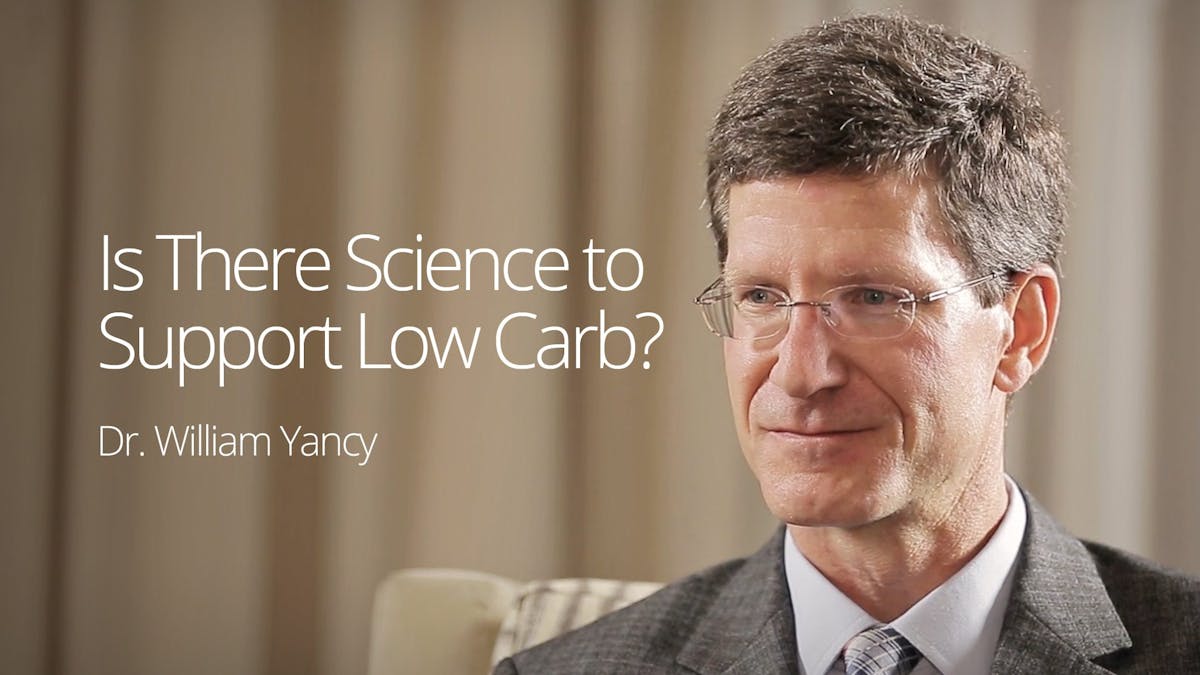
Dr. William Yancy, a researcher who investigates the effects of carbohydrate-restricted diets, shares his views on the science of low carb.


 *Pro Tip: If you sign up for Betancourt's email list you can get notified about future sales and discounts.
*Pro Tip: If you sign up for Betancourt's email list you can get notified about future sales and discounts.




















